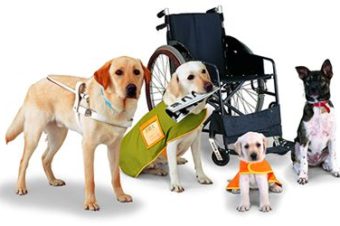Response to disaster raises similar themes. We must acknowledge that certain vulnerabilities exist among many elders and that these vulnerabilities are likely to intensify at times of disaster and during the often lengthy recovery process. Older persons have much to offer in times of crisis. Their perspective, their life skills, and their compassion have been tempered over decades. As this guide points out, they are uniquely able to assure others, when times are difficult, that “this, too, shall pass.” Read more.
Similar Posts
Understanding How to Accommodate Service Animals in Health Care Facilities
This fact sheet is intended to clarify legal obligations and etiquette when interacting with an... Read More
Tips for first responders for people with special needs
A small pocket guide provides guidance on how first responders should approach caring for people... Read More
Tools for Communicating with Specific Vulnerable Groups
The Florida Department of Health (DOH) developed a communication resource guide for public health personnel... Read More
A Guide to Managing Stress in Crisis Response Professions
This SAMHSA pocket guide provides first responders with information on signs and symptoms of stress... Read More
State of Maine Disaster Behavioral Health Response Plan
This plan provides guidance to those within the Disaster Behavioral Health Program with a general... Read More
Maine Disaster Behavioral Health Communications Manual
The primary goal of a disaster behavioral health response is to assist individuals in coping... Read More




